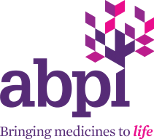



Who are the Clinical Pharmacology Skills Alliance?
The Clinical Pharmacology Skills Alliance (CPSA) launched in December 2017 as a partnership between the Association of the British Pharmaceutical Industry (ABPI), the British Pharmacological Society (BPS), the Faculty of Pharmaceutical Medicine (FPM) and Health Education England (HEE). The CPSA is led by an Executive Board, which is co-chaired by Professor Sir Munir Pirmohamed (BPS) and Andrew Foxley (AstraZeneca on behalf of ABPI).
Our ten-year workforce strategy for clinical pharmacology (2021 - 2031)
The CPSA has worked with NHS England and NHS Improvement to develop a ten year strategy for clinical pharmacology (2021 - 2031). We want to see £57.5m invested by 2031 to double the number of clinical pharmacologists in the NHS (to 215 consultants and 87 training posts) – people that the NHS needs to create the workforce of the future. We have asked the government to make critical investments now as part of the upcoming spending review.
Invest in clinical pharmacology for healthier patients, better medicines and a more efficient NHS
Investing in UK clinical pharmacology will help enhance the UK’s capacity to deliver clinical research in partnership with the NHS, strengthen the UK as a development base for new therapeutics and support patient care through the safe and effective use of medicines.
The purpose of the CPSA is to develop and deliver a long-term, cross-sector action plan for UK clinical pharmacology to help deliver aims identified nationally through the Industrial Strategy and the NHS Long-Term Plan. Our strategic objectives are to raise visibility, support training, develop partnerships, and take responsibility for the stewardship of UK clinical pharmacology.
Strategic objectives and successes
- Visibility: We will raise awareness of clinical pharmacology and develop opportunities for people to experience it first-hand. Our successes:
- Engaging potential clinical pharmacologists through careers resources, presence at careers events, clinical pharmacology case studies and through Clinical Pharmacology Week, held annually in October.
- Supporting opportunity through a mentoring scheme and by providing experience through foundation trainee taster weeks.
- Training: We will develop practical support to ensure clinical pharmacologists have a consistent, relevant and high-quality training experience. Our successes:
- Developing a new Clinical Pharmacology Scientist apprenticeship. Apprentices will design, analyse, interpret and report clinical research and clinical trials in industry, CROs, academia and the NHS.
- Reviewing and aligning curricula for medical training in both Clinical Pharmacology & Therapeutics and Pharmaceutical Medicine.
- Producing a Specialty Trainee Training Charter, which is being piloted in London.
- Working with the Specialty Advisory Committee and Training Programme Directors to run the first fully national training programme for clinical pharmacology trainees, including continuing to deliver BPS training and assessment annually.
- Delivering clinical pharmacology themed training days for junior doctors to support training and improve recruitment to the specialty.
- Partnership:We will work in collaboration with the sector to determine where clinical pharmacology can add the most value, and develop partnerships with other professionals to increase our collective impact. Our successes:
- Working with the Polypharmacy Service Consortium (a collaboration between Clinical Pharmacologists, Clinical Pharmacists, Geriatricians and General Practitioners) to support their vision that “for people on multiple medicines, every prescription should be personalised and should bring worthwhile benefit”.
- Partnering with the Royal College of Physicians to deliver recommendations about implementing pharmacogenomics in the NHS.
- Stewardship: We will work with sector leaders to develop and implement a future-focused workforce strategy that meets the needs of the NHS and supports the UK life sciences industry. Our successes:
- A joint Academy of Medical Sciences FORUM report exploring shared ambitions for UK clinical research and the steps that need to be taken to strengthen the clinical research workforce.
- Joint CPSA policy consultation responses, covering topics which include NHS workforce strategy, NHS Long-Term Plan and the UK skills base.
Read more about clinical pharmacology skills.